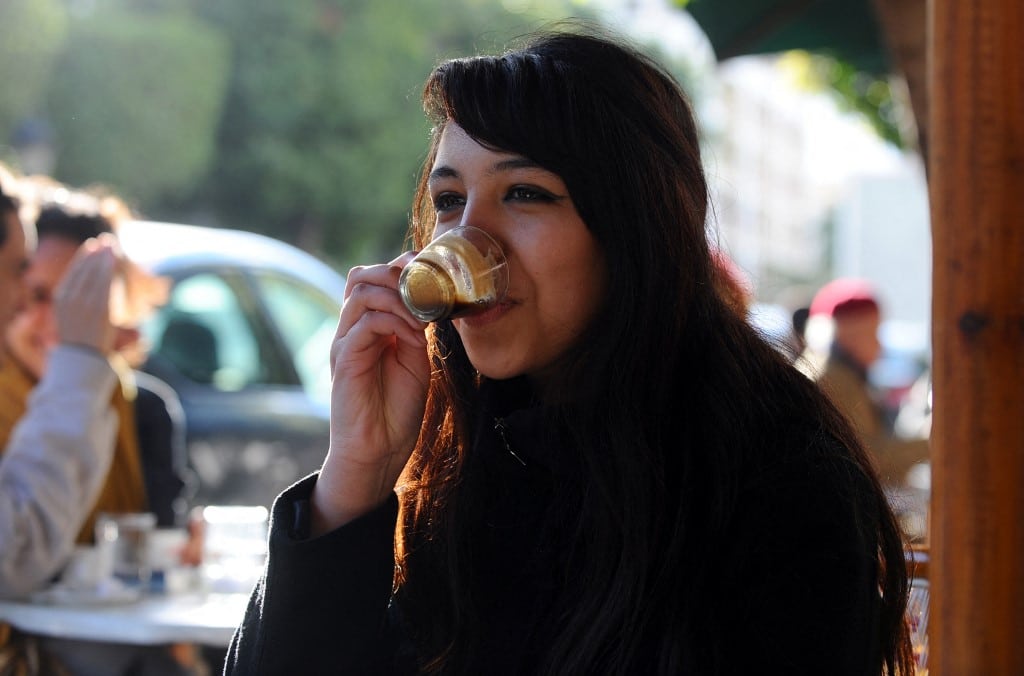
Hakim Marzouki
Coffee is still – like its color – a captivating word. It is a drink, a sphere, and culture for the people who came to know, roast, and grind these charming beans discovered by shepherds in the valleys of Yemen and Abyssinia.
An aura of mystery and stories shroud this dark hot drink. Sometimes, they are interesting stories. Sometimes they are sad and heartbreaking. You feel that these stories are made by black and slender hands, worn down by harvesting, to these stories of the most dangerous deals signed on the whiteness of cups in closed rooms.
Coffee enjoyed g different conceptions, tastes, and metaphors. It is sweet for lovers and warm in the reception tents of the Arabs of the desert. Coffe might be cold at the tables of boredom and waiting. It can be bitter at funerals and hard to sip in times of anger and revenge. When you hear the sound of the war drums, it will be hard to sip coffee.
Coffee cups are a vaguely written script, entertaining women of the confused East in salons. Coffee is a profession for Gypsies. It is a way to pass and count lost time of the unemployed to the rhymes of Abdel Halim Hafez masterpiece Qare’at al-Fengan (the fortuneteller), written by the spoiled Damascene Nizar Qabbani.
Tunisians have an odd rare story about coffee cups. They raise their cups between their eyes and swear upon them in gatherings. When a Tunisian swears, he says: I swear to this Shadhuliyya’s head. He refers to the Sufi scholar Abul Hasan ash-Shadhili (1196 – 1258) and his Sufi order. This order is considered one of the most prominent Sufi orders spread in the Arab world. Ash-Shadhili was the first to bring coffee from Yemen. He introduced it to his followers who used to drink it in dhikr circles as they pray the night, trying to stay awake and seeking energy in his Zawiya located on a hill outside the city wall. Until this day, people still wake up with their coffee jugs and go to his Zawiya, which was a cave where some Christian monk used to worship. It is the first public cafe in history.
There was a funny paradox, as one of the most famous sheiks of the Shadhili order in Tunisia – Sidi Brahim Riahi – has quit drinking coffee. When asked about the reason, he said: “I left it for the commoners when I saw it falling from its perch and fools drinking it.”
Nevertheless, I did it and sipped my coffee this morning at the top of the hill at the cave of the saint, and at the shrine of the Wali whom the graves eagerly climbed, leaving behind houses, markets, and little grudges. The silence was the master of the place, and the coffee tasted better than ever.
I spoke with my remaining relatives that I had left in the Levant years ago, and we shared coffee over the phone, which was shaken every time by the sounds of shells and the roar of bullets.
O coffee who perfumed itself with the breaths of this venerable sheik and his loyal murids, baptize every lip that lies above you at this moment with the spirit of love and peace, do not be an instigator of grudges, intrigues, and wars. Go back to the morning of the Levant people in harmony. Go back to the people who added a few cardamom seeds to you and a lot of joy and love of life.
DISCLAIMER
The opinions expressed in this publication are those of our bloggers. They do not purport to reflect the opinions or views of Fanack or its Board of Editors.


